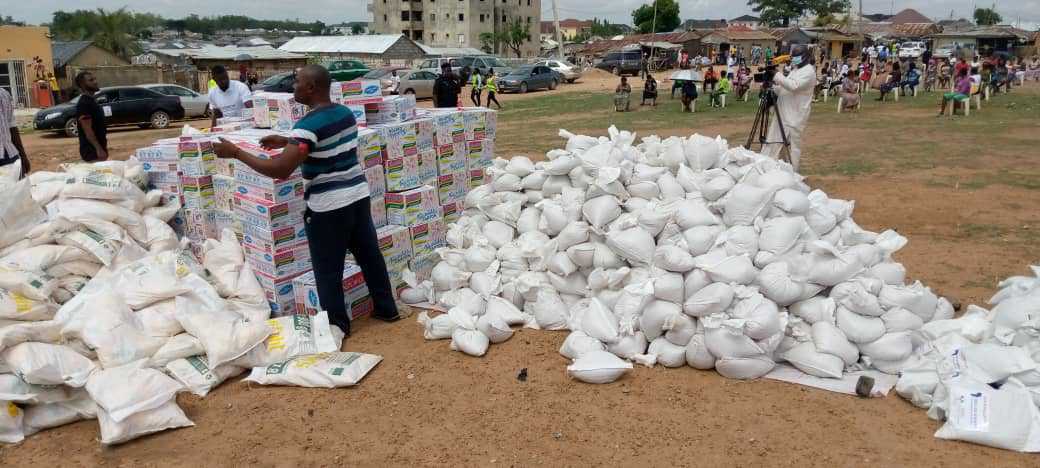There seems to exist a recurring narrative – one of grand promises and another, profound disappointments over certain policies, especially geared towards poverty alleviation and improvement of the lives of Nigerian citizens. This is in spite of the opportunities and resources that naturally abound in the country.
The economic asphyxiation of the masses is exacerbated by a government that often fails to harness its abundant resources effectively for the benefit of the people.
As at the last count, Nigeria has implemented various social intervention programmes intended to alleviate the suffering of the masses. However, the effectiveness of these programmes is often questionable. Trader Moni, N-Power, school feeding programme and now, fuel subsidy removal palliative, among other initiatives, have faced allegations of corruption, politicization, and mismanagement, leaving the intended beneficiaries in the lurch.
The Trader Moni of the past administration and palliatives associated with the recent fuel subsidy removal by this present administration which are promises of economic relief for the masses and positioned as lifelines for the most vulnerable citizens, have again, cast a mirage of hope.
- Life returns to Borno night market sacked by insurgents
- The Nigerian music industry is a war zone – Jaywon
These programmes are superficially positioned to uplift the masses from sufferings. However, as the dust settles and the realities emerge, the story is one of economic despair. The common thread that binds them is a pattern of waste, mismanagement, and questionable outcomes, reflecting a broader challenge in Nigeria’s approach to addressing the needs of its citizens.
Just like the now rested Trader Moni microcredit scheme of President Muhammadu Buhari’s administration, the N3.27tn subsidy removal palliatives announced by President Bola Ahmed Tinubu’s administration to cushion the economic hardship on Nigerians following the removal of fuel subsidy, may just be another phoney jamboree with no significance or impact on the common man, who are the primary target of the initiative.
These palliatives include N100bn to acquire 3,000 units of 20-seater CNG-fuelled buses, N200bn to boost agriculture production, N75bn for manufacturers, N125bn for micro, small and medium-sized enterprises and the informal sector, N185bn as palliatives for states, N1tn on student loans and other programmes.
Others are N315bn to pay federal workers’ N35,000 allowance for six months, N1.13tn to 15 million households at N25,000 per month for three months from October to December 2023, N70bn earmarked as palliative measures for lawmakers, and N75bn loan facility to 1.5m market women.
The fact is that, Nigerians are always promised relief, but what they often receive are half-measures and misdirection. The yearning for substantial change always results in grand gestures without concrete actions.
The much-touted Trader Moni initiative as at today has no testimony of a Nigerian who was impacted by the programme, who could stand before the world and really chronicle a story of transformation from grass to grace, neither can anyone vouch of economic improvement since the fuel subsidy removal initiative was announced. What an irony! This is in spite of the fact that over 50 per cent of the funds have left government coffers, yet poverty looms large on daily basis.
With the current hardship in the country, Nigeria needs policies and initiatives that go beyond the illusion of hope. It requires genuine empowerment, sustainable development, and social and economic justice. Rather than short-term fixes, the nation must move towards long-term, transformative solutions that improve the well-being of all citizens.
The economic strangulation of the masses cannot continue. Empowering ordinary Nigerians requires the government to prioritise policies that genuinely address the needs of the population. It involves a commitment to social and economic justice, investment in education, job creation, and the eradication of systemic corruption.
Accountability and transparency in governance are critical to mitigating waste and economic asphyxiation. These principles can help ensure that public resources are allocated efficiently and equitably. Strengthening the rule of law and anti-corruption efforts is pivotal to restoring the faith of the masses in their government.
Government’s tendency to waste resources and economically strangle the masses is a stark contradiction to the nation’s potential.
Nigeria should be a land of opportunity and prosperity for all its citizens.
However, this vision can only be realised when the government shifts its priorities towards transparency, accountability, and policies that genuinely uplift the masses.
The economic strangulation of the masses must end, and the government has a fundamental role to play in ensuring that Nigeria’s wealth benefits all its people.
Kalu Okoronkwo wrote from Lagos

 Join Daily Trust WhatsApp Community For Quick Access To News and Happenings Around You.
Join Daily Trust WhatsApp Community For Quick Access To News and Happenings Around You.



